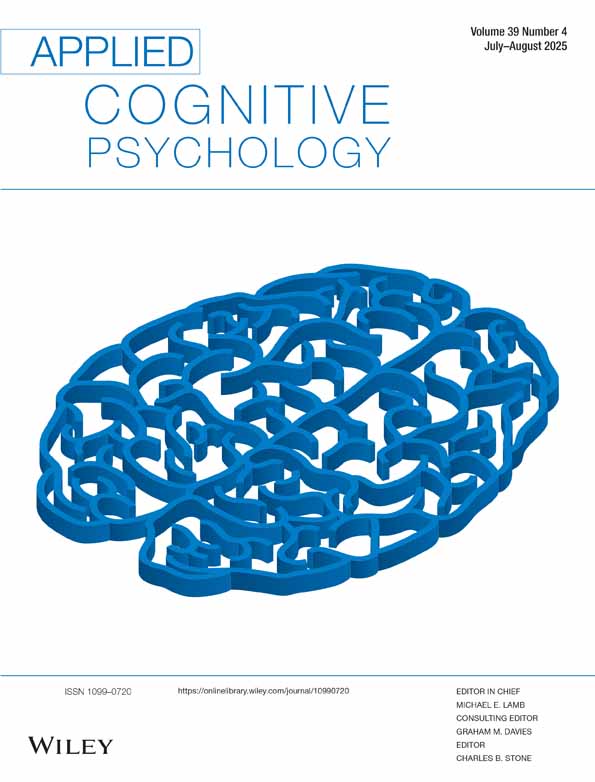Reconstructing the serial order of events: a case study of September 11, 2001
Abstract
Participants reconstructed the serial order of events associated with the terrorist attacks of September 11, 2001. Accuracy was stable as the retention interval doubled from 9 weeks to 18 weeks, but most participants (63%) made errors sequencing even the ‘unforgettable’ events of that day, with most errors (72%) falling within one position of being correct. This positional gradient (near misses more common than far misses) mirrored that found in laboratory studies of order memory, despite basic differences in how ordinal information was presented to observers, suggesting that the positional gradient may generalize across many different circumstances of serial-order reconstruction. Monte Carlo simulations illustrate this possibility by showing that simple constraints on pairs of events explain substantial variance in the data. Copyright © 2003 John Wiley & Sons, Ltd.




